‘SMART’ Under Consideration as New Approach for West Hartford’s Waste Management

Audio By Carbonatix
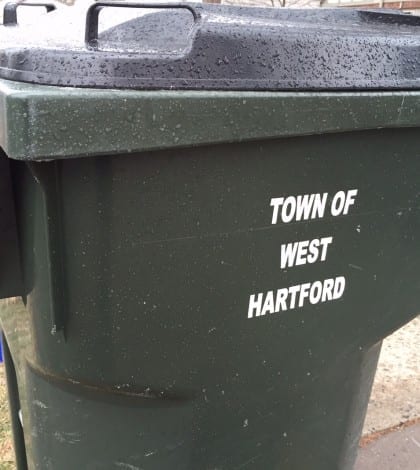
Photo credit: Ronni Newton (we-ha.com file photo)
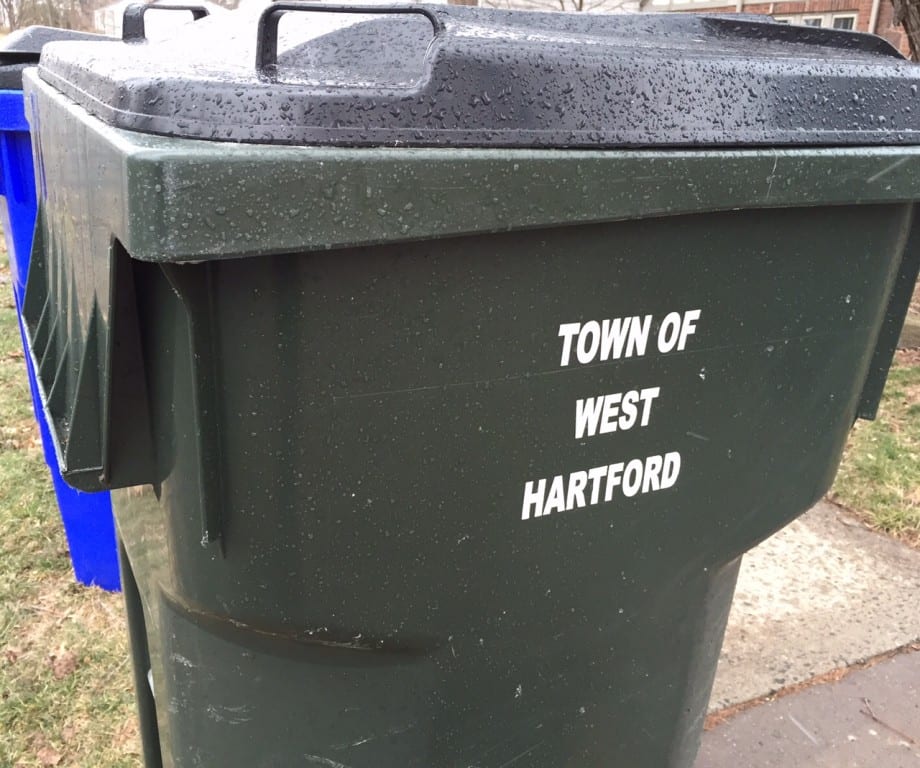
The Town of West Hartford will consider some changes to the way trash collection is paid for, but collection will still take place with the big green barrels. Photo credit: Ronni Newton
‘SMART,’ which is an acronym for ‘Save Money and Reduce Trash,’ would be a transformation in how West Hartford residents pay for waste disposal.
By Ronni Newton
A plan to change the way West Hartford residents pay for the collection of their trash is in the early stages of development, and Director of Public Works John Phillips hopes that ultimately it will lead to reduced costs and less trash, and also provide a means to achieving the goal of a sustainable future in waste management.
“This is not new. There are more than 7,000 communities across the country that do it this way,” Phillips said about a “pay as you throw” system. On the east coast nearly every municipality in Massachusetts has converted to pay as you throw, and a major conversion is currently taking place in the Washington, DC metropolitan area.
Phillips has been looking into the “SMART” program for about a year, and he told members of the Town Council’s Community Planning and Physical Services Committee last week that while at first he was skeptical, “I’ve turned because I studied it.”
SMART would turn trash into a utility cost, with unit-based pricing, Phillips said. Residents would purchase a 33-gallon municipal waste bag, at a cost to be determined, and anything that goes into the green trash barrel would first need to go into that bag. Residents who have more trash would fill more of the municipal bags, but curbside collection would not otherwise be changed.
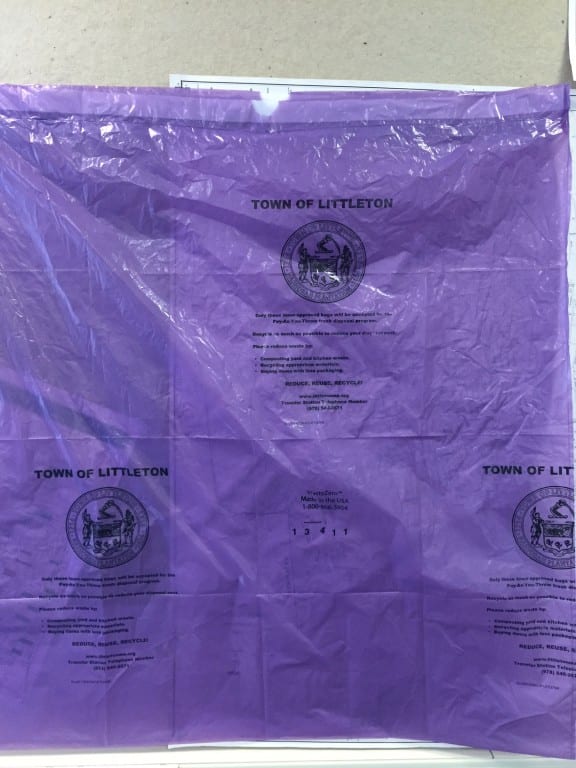
Example of a municipal waste bag used in a pay-as-you-throw system. Photo courtesy of John Philips
“The utility cost is how many bags you use,” said Phillips.
Smaller municipally-issued trash bags may also be offered for use in kitchen or bathroom trash receptacles to simplify the process for residents, Phillips said. The disposal process would be audited to ensure that all trash would be in the municipal bags.
“Other residents shouldn’t have to subsidize me if I’m being wasteful,” he said. It’s a change in the way people think and should prompt them to segregate materials properly which in turn would result in a cleaner (and smaller) waste stream as well as increased recycling.
There are many reasons why Phillips believes that a system like SMART is needed – and would work – in West Hartford and would have a positive economic impact on the town as well as for individuals who do a good job managing their own waste stream.
“The waste industry is changing before our eyes and we need to make changes because of sustainability,” Phillips said. The infrastructure to get rid of our waste is shrinking, while costs continue to rise. In addition, there is a state mandate to divert 60 percent of materials out of the waste stream by 2024.
“I don’t think people would want to see our garbage go into a big hole out west,” Phillips said. Households are key stakeholders in this.
Phillips said that people shop around and take economics into account for nearly everything else they do or purchase – but put little thought into what they throw away.
The recycling rates have increased since West Hartford implemented single stream recycling in 2008, but are still not where they need to be. “Single stream increased the recycling rate from the teens to 27 percent, but it hasn’t budged,” Phillips said.
The change in attitude won’t necessarily be easy, and Phillips said it could take as long as a decade, but he believes that instituting unit-based pricing will divert anywhere from 60-70 percent of materials away from the waste stream.
If we do nothing, the cost of trash removal will continue to grow. “I’m forced to build a budget and hope that I can pull that money out of the community,” Phillips said. Under the current system, there’s really no control or checks and balances to get people to reduce what they discard as trash.
West Hartford’s budget for waste and recycling is approximately $5 million, and residents currently throw out about 775 pounds of trash per year per person.
Under the current contract disposal costs will increase 2.5 percent each year over the next 10 years. Added to that are transportation costs, labor, insurance, fuel, and other costs that could vary over time. If we do nothing,
“The only way to reduce the amount of material at the end is to decrease it at the collection point,” Phillips said. He thinks that implementing a system like SMART will reduce that number to 450 pounds per year.
The number of trucks would be decreased, and he said that trash collection could perhaps be cut back to bi-weekly. The initial cost of the bags can’t yet be determined, but may be around $2 each. The goal would be for the sale of the bags to pay for the collection and disposal of the garbage. That might take a few years, Phillips said.
According to West Hartford Town Manager Ron Van Winkle, tip fees for trash disposal currently cost the town about $1.5 million. Another $3.5 million is in the budget for pick-up as well as disposal of bulky waste and other incidentals. Of that, about $1.2 million is the cost of recycling pick-up, for which the town receives some revenue, currently about $8 per ton. Approximately 7,200 tons of material was recycled in FY 2014, according to the town budget.
“One of the services that has changed dramatically over the decades is waste removal,” Van Winkle said, from the days where West Hartford used scooters to pick up barrels from residents’ driveways to use of blue bins at the curb to single stream recycling. And it will continue to change, he said, with the possibility of organics recycling and possibly a return to the need to separate items looming on the horizon.
Van Winkle said that programs like SMART are being successfully implemented in communities across the nation and would increase the amount of materials recycled in West Hartford because homeowners would have that control.
Trash disposal costs could drop by as much as $1 million, Van Winkle said. “I would expect significant savings which consumers could see in the taxes on their homes,” he said. He said it’s still too early for a solid estimate.
If SMART is implemented it may not be for another two years, and Phillips said that before anything changes there will be extensive community education and outreach. West Hartford has already received one grant to conduct that outreach and expects to begin those efforts shortly.
DEEP Supervising Environmental Analyst Chris Nelson is part of the agency’s Sustainable Materials Management group that’s working with municipalities to meet the state’s 60 percent diversion goal. DEEP has been promoting pay-as-you-throw systems for years as a way to get people to pay attention, increase recycling, and cut costs. Mansfield and Stonington have implemented comprehensive unit cost systems that have been in place for years, said Nelson.
DEEP has been working with consultant WasteZero on a program called “DEEP Dive,” educating officials in West Hartford as well as four other communities (New Britain, Bridgeport, Milford, and Waterbury) on the advantages of a pay-as-you-throw program. “It can not only help the environment but also result in cost savings,” he said. DEEP is hoping that West Hartford and New Britain take the lead in bringing pay-as-you-throw to the Greater Hartford area, and he said New Britain is also planning community outreach this spring.
SMART can be very flexible, and can be delivered to the West Hartford community in a way that meets the town’s goals and needs, Phillips said. He thinks that it could be one of the programs “that we will look back on in five years and think we should have done sooner,” but getting the community engaged is critical. If residents won’t comply, the town may need to look at other options, he said.
“We’re trying to offset a rise in price by getting homeowners and businesses to throw out less – so we can burn less and recycle more,” said Van Winkle.
“I don’t want to do this in a fiscal crisis or because the legislature insists on it,” Phillips said. “The ultimate focus is to reduce waste. Pay to throw is only one solution.”
“Doing nothing is no longer an option,” said Phillips.
Click here for more information about SMART on the DEEP’s website.
Like what you see here? Click here to subscribe to We-Ha’s newsletter so you’ll always be in the know about what’s happening in West Hartford!


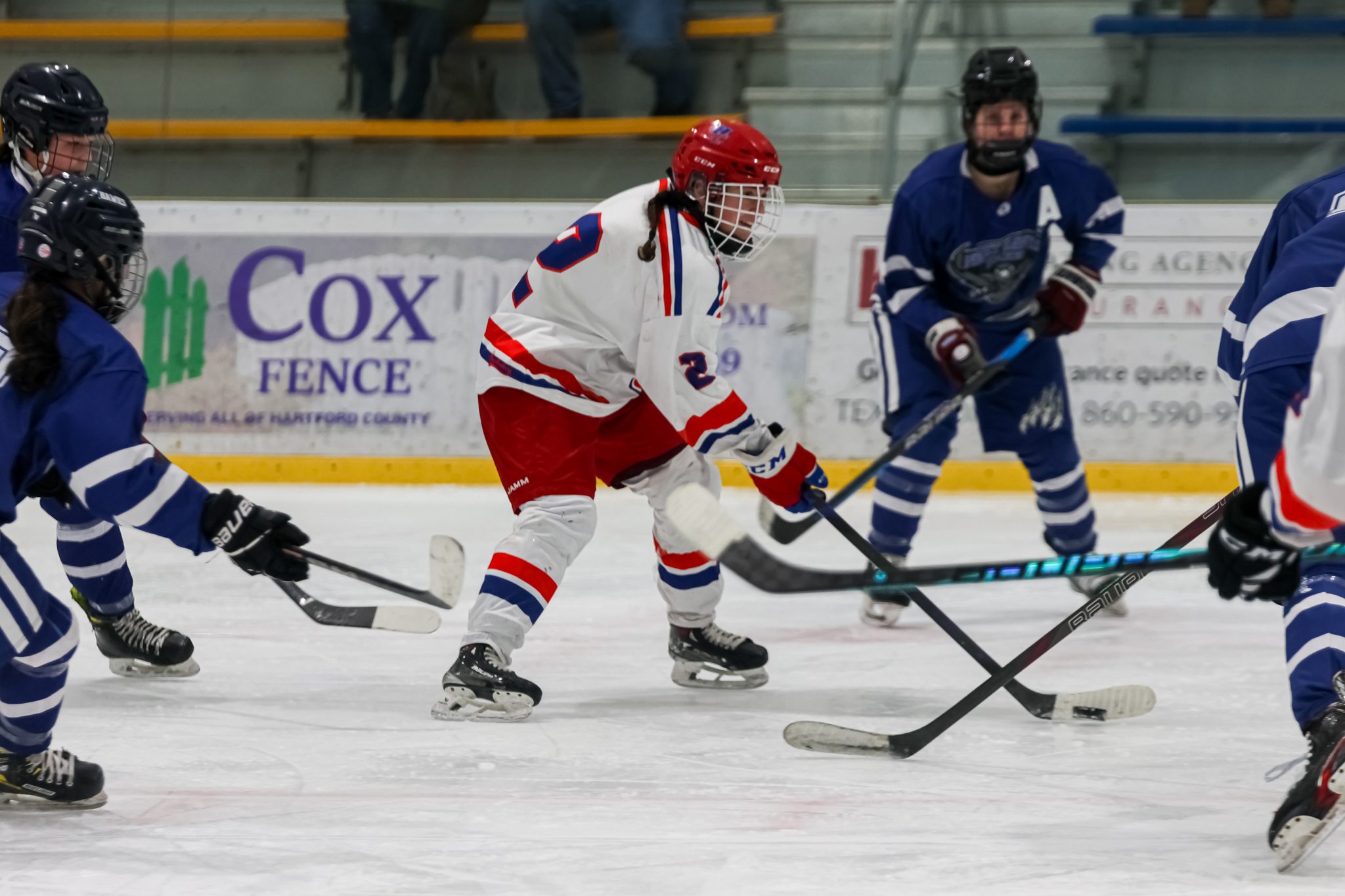
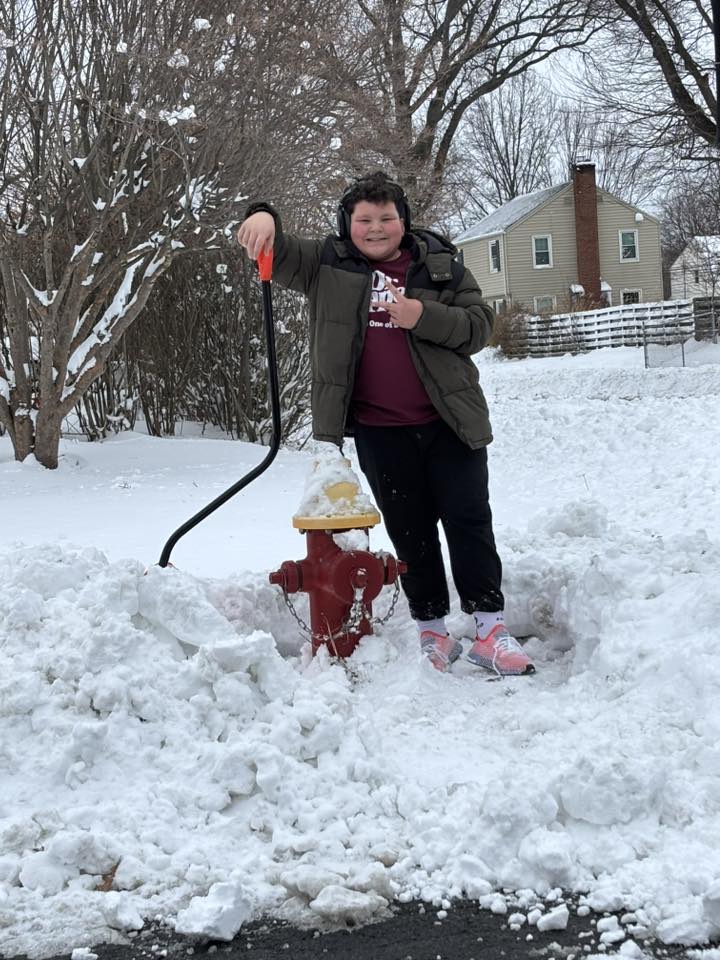
I hope this will be subject to public discussion will full disclosure long before any changes are implemented. The idea of having to purchase purple bags is already questionable. exactly how this works needs to be described. What will prevent people from tossing their trash in someone else’s barrel? How will bi weekly trash collection smell in the hot summer days? I understand need for change. Want to see more choices.
Would the town supply additional recyclable trash bins free of charge? That would be a good place to start. One bin per household is not sufficient . This proposed plan of the taxpayer having to purchase the garbage bags to pay for the collection of trash needs more consideration. It will be interesting to see what the final numbers are to the taxpayers. I agree with the environmental aspect but it has to be cost effective.
We have a second recycle barrel. I don’t believe we had to pay anything for it. Just call the town or paines (sorry can’t remember which) and tell them you frequently fill up your existing barrel. They do their best to support recycling.
I think going to every other week for trash pick up is a horrible idea. We rarely ever fill our barrel currently and would likely have capacity for two weeks worth of trash. But the stink factor in the summer would be overwhelming. We compost our fruit and vegetable matter, but you can’t compost meats in a backyard pile and that is what causes the stench.
Transparency…
The town wouldn’t save any money they would just spend it someplace else, instead of paying down debt.
I see a lot of benefits to this like… my taxes would go down and businesses may do more (or start) recycling in town. However, I have a few concerns… The bags look plastic, will the bags be sold at local stores and will they add a profit for themselves into the price, by-weekly trash collection would increase issues with bears, bugs, and odors. Most importantly, will the town counsel decide this or will it go up for a vote?
I have one main concern…what happens when someone throws out their trash in your bin. I see it all the time, people walk their dogs and throw out their “dogs business” in the trash bins. So now your telling me i am responsible for someone else’s trash. This is a horrible idea and should be re-considered. Why build a hotel if we can’t even afford to pay for trash pickup. This town stinks.